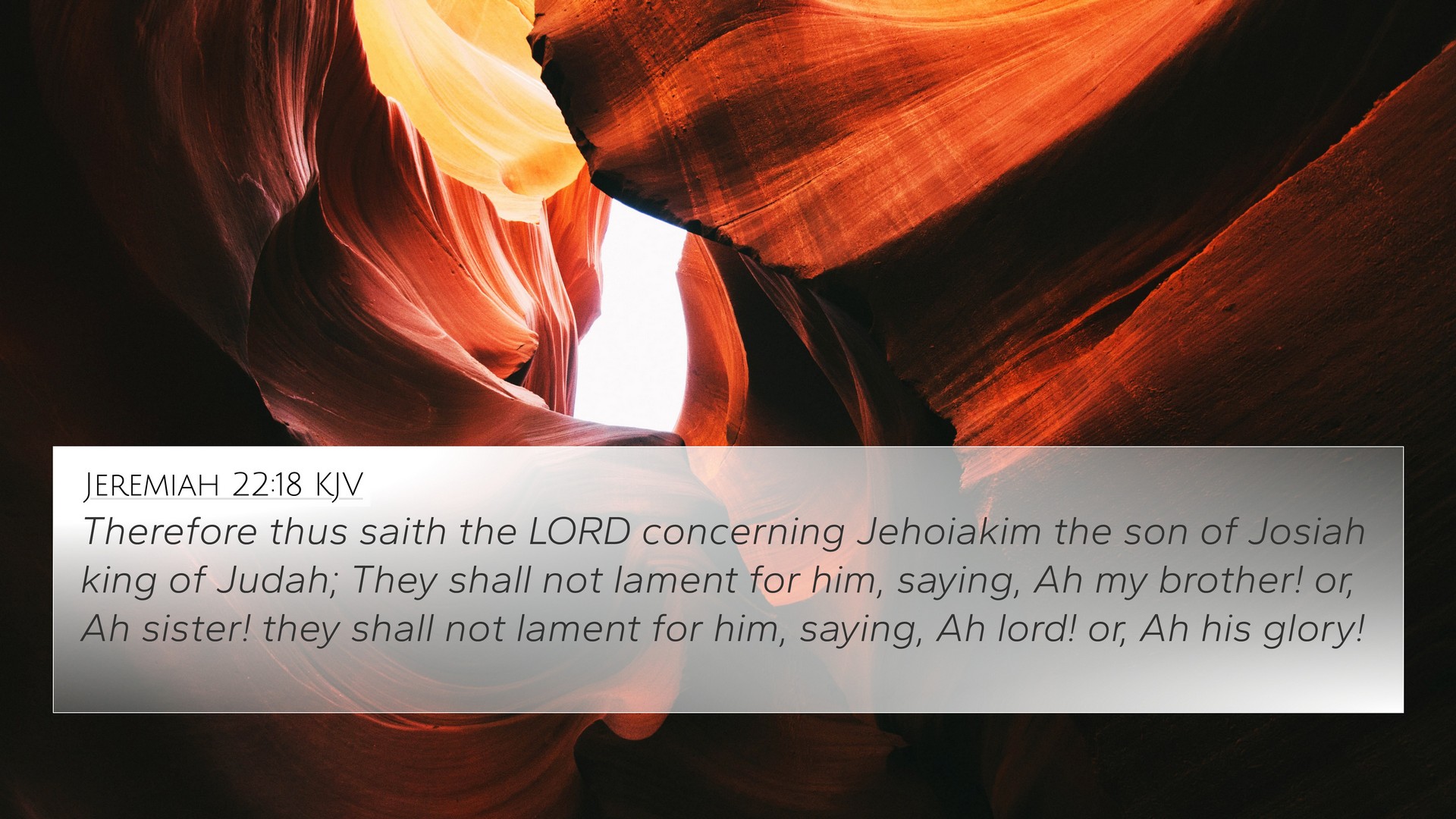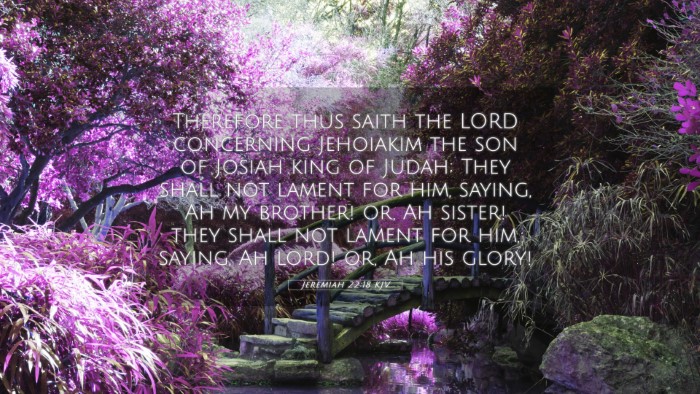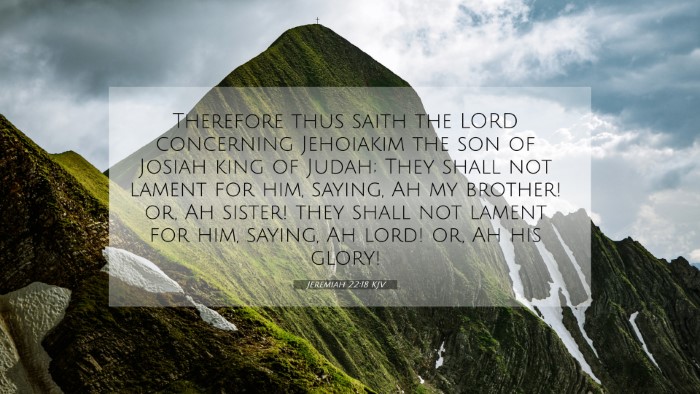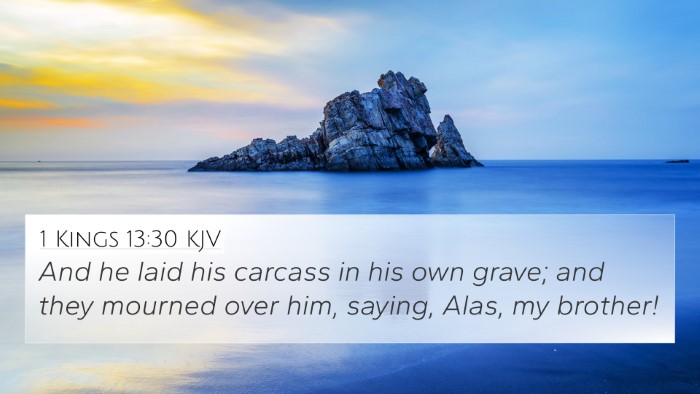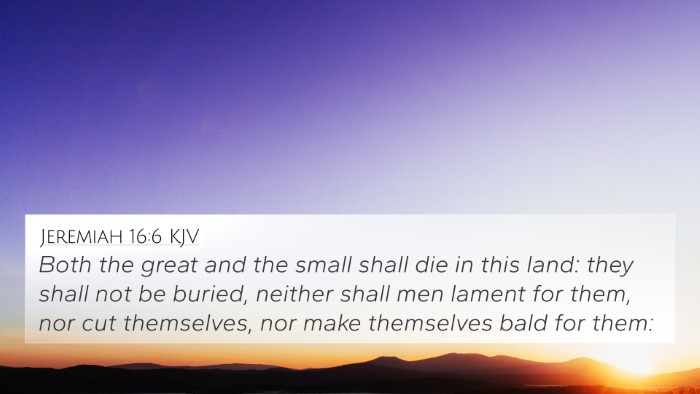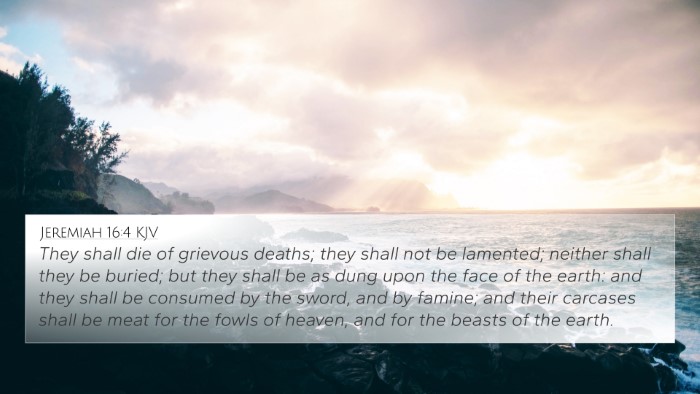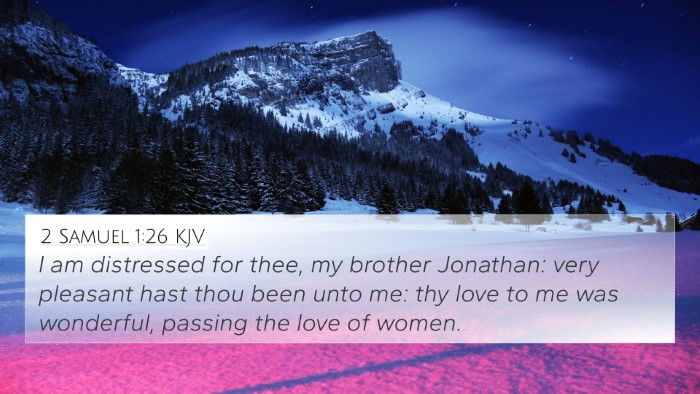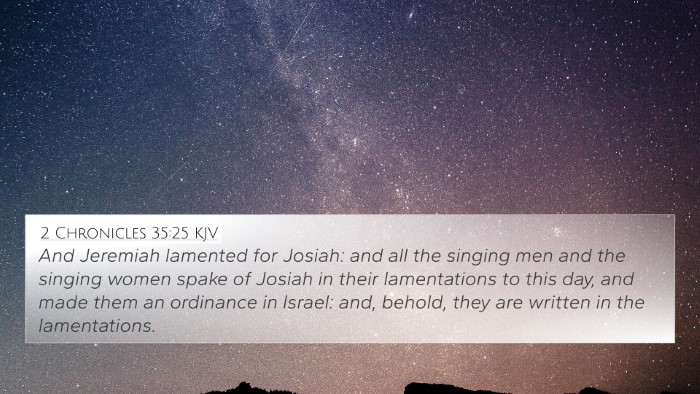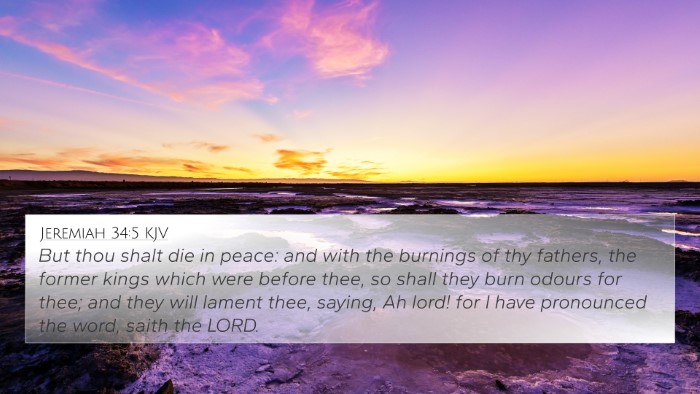Understanding Jeremiah 22:18
Verse: "Therefore thus says the LORD concerning Jehoiakim the son of Josiah, king of Judah: They shall not lament for him, saying, 'Alas, my brother!' or 'Alas, my sister!' They shall not lament for him, saying, 'Alas, master!' or 'Alas, his glory!'" (Jeremiah 22:18, ESV)
Summary of Meaning
This verse reflects God's judgment on King Jehoiakim of Judah. The lack of mourning signifies the king's failure to reign justly, emphasizing the consequences of his actions and the dishonor brought upon him. Distinct from typical royal deaths that elicit sorrow, Jehoiakim's end would not garner the typical lament that honors a king.
Interpretative Insights from Commentators
The insights gathered from public domain commentaries can help readers appreciate the layers of meaning in this scripture.
Matthew Henry's Commentary
Matthew Henry discusses how this verse illustrates the profound contempt in which Jehoiakim would be held at his death. He emphasizes that the absence of mourning points to the consequences of tyranny and wickedness, contrasting the dignity of a godly ruler with the disgrace of one who strays from righteousness.
Albert Barnes' Notes
Albert Barnes highlights that Jehoiakim’s reign was marked by enmity toward God. The refusal to mourn indicates a societal rejection of his leadership. His demise is not mourned because it aligns with divine justice, representing the overarching theme of accountability and retribution in the scriptures.
Adam Clarke's Commentary
Adam Clarke notes that the failure to mourn for Jehoiakim suggests a prophetic warning of the divine displeasure with Judah’s king. He connects this passage to the idea that God’s wrath can lead to a complete disregard for those who stand against Him, reinforcing the theme of judgment throughout the prophetic texts.
Cross-References to Jeremiah 22:18
To gain deeper insights into this verse, consider the following cross-references:
- Jeremiah 22:10: Addresses the mourning for another king whose death was genuinely grievous.
- 2 Kings 23:36-37: Depicts Jehoiakim’s character and his disobedience to God.
- Jeremiah 36:30: Offers a prophetic preview of judgment coming upon Jehoiakim.
- Lamentations 1:5: Reflects on the state of Jerusalem under the weight of wicked leadership.
- Proverbs 14:34: Demonstrates a thematic connection between righteousness and exaltation; contrasting Jehoiakim's reign.
- Isaiah 22:12-14: Another lamentation that foreshadows judgment similar to what happens with Jehoiakim.
- Ezekiel 21:25-27: Discusses the transfer of kingship and judgment against unrighteous rulers.
- Matthew 23:37: Jesus laments over Jerusalem, tying the fate of rulers to the judgment awaiting the people.
- Acts 1:18: A reflection on the death of Judas Iscariot highlights themes of betrayal and dishonor.
- John 12:48: Jesus speaks to the consequences of rejecting His words, paralleling Jehoiakim’s rejection of divine authority.
Thematic Connections and Interpretations
Jeremiah 22:18 not only serves as an individual verse but integrates into a broader narrative about leadership, divine judgment, and societal morality. It emphasizes the importance of righteous governance.
The Role of Cross-Referencing
This verse can be effectively studied through the lens of cross-referencing. Here are some tools for deeper Bible study:
- Using a Bible concordance to find words and themes.
- Engaging with a Bible cross-reference guide for thematic connections.
- Learning about cross-reference Bible study techniques to explore links between books.
- Exploring Bible reference resources for comprehensive understanding.
Example Cross-Referenced Themes
Consider these themes when assessing connections between verses:
- Identifying connections between Old and New Testament passages.
- Cross-referencing Psalms with New Testament teachings.
- Understanding the inter-Biblical dialogue that reveals shared messages and warnings.
User Intent and Search Patterns
Many scholars and laypersons seek to understand:
- What verses are related to Jeremiah 22:18?
- Find cross-references for judgment themes in the Bible.
- How do verses from the Prophets connect with the Apostolic teachings?
Conclusion
Jeremiah 22:18 serves as a vivid reminder of the nature of divine judgment, the importance of righteous leadership, and the communal response to tyranny. By utilizing comparative Bible verse analysis and thematic connections, one can grasp the weight of this scripture within the grand narrative of the Bible.
